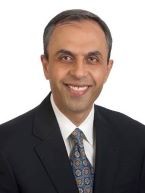 This month the PNA Spotlight focuses on Dr. Aaron Cohen-Gadol, a professor at Indiana University Department of Neurosurgery. He is the director of neurosurgical oncology and its fellowship, and co-director of the Signature Center for Brain and Neurological Tumors. Dr. Cohen-Gadol earned his undergraduate degree from the University
This month the PNA Spotlight focuses on Dr. Aaron Cohen-Gadol, a professor at Indiana University Department of Neurosurgery. He is the director of neurosurgical oncology and its fellowship, and co-director of the Signature Center for Brain and Neurological Tumors. Dr. Cohen-Gadol earned his undergraduate degree from the University
of California at San Diego and attended medical school at the University of Southern California. He then completed his residency training at Mayo Clinic in Rochester, Minnesota. He also completed fellowship training in two subspecialties: epilepsy surgery (Yale University) and skull base/cerebrovascular surgery (University of Arkansas.) In addition, Dr. Cohen holds a Master’s Degree in Clinical Research from Mayo Graduate School and an MBA from Kelley School of Business. His areas of interest include surgical treatment of complex intracranial tumors and vascular lesions.
He is the founder and president of The Neurosurgical Atlas (https://www.neurosurgicalatlas.com), a multimedia resource for neurosurgical techniques. Dr. Cohen-Gadol was kind enough to answer some questions posed by the PNA. His answers follow.
• What inspired you to choose your career path?
I have always been intrigued by the challenges of microsurgery and the required technical expertise for its performance as well as the anatomy of the central nervous system. These challenges provide an opportunity for the surgeon to innovate better surgical options for our patients. The rewards of neurosurgery in terms of affecting patients’ lives positively have been very gratifying, fulfilling and encouraging to me.
• What is the primary focus of your work/research?
The focus of my work has been refinement of operative routes to deep-seated brain tumors. The need to do more via less disruptive surgical approaches is of great interest to me. Minimizing the risk of any complication and promoting a faster patient recovery is the goal. I have also promoted neurosurgical research and education via my work with a not-for-profit organization called the Neurosurgical Atlas.
• What do you consider to be the future of your field?
The future will involve discovery of non-invasive modalities for treatment of brain and pituitary tumors including a variety of drugs that can not only shrink the tumor but also avoid its recurrence. Less invasive ways to remove brain tumors will continue to be explored further. Early diagnosis via more practical means may also be targeted for some tumors.
• What should patients know about your field/what deserves more recognition/awareness?
Our field is dynamic and constantly changing to improve the care for our patients. All surgeons strive to improve the care of their patients and appreciate the trust our patients have bestowed upon us.
• What would you like to convey about yourself to your patients?
It has been a true honor to participate in the care of my patients who have taught me so much. I have always believed that I have to perform not “the best I can do” but rather “the best anyone can do.”
• Why did you get involved with the PNA; what is the extent of your involvement?
I initially heard about the PNA via my colleagues. The PNA has been a special patient advocate and also a great partner for the providers who treat patients with pituitary tumors. The PNA’s mission is consistent with my mission. We can do so much more for our patients if we can join forces via patient advocacy organizations.
